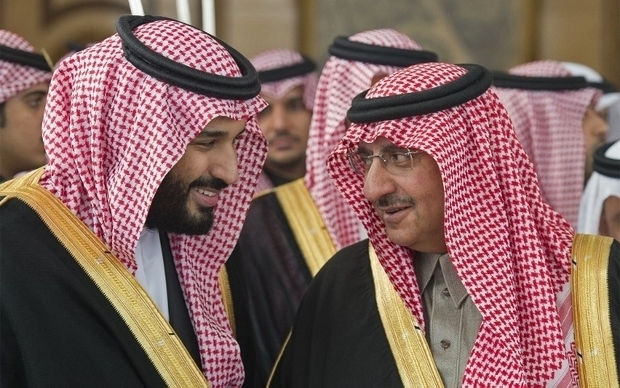Saudi Arabia's Mohammed bin Nayef 'hooked on painkillers'

The person once expected to become Saudi Arabia’s next king, Mohammed bin Nayef, was forced to step aside in an effective palace coup by King Salman bin Abdulaziz because the younger man's judgment was clouded by his addiction to painkilling drugs, according to a Reuters report on Wednesday.
"The king came to meet MbN and they were alone in the room. He told him: 'I want you to step down, you didn't listen to the advice to get treatment for your addiction which dangerously affects your decisions'," a source close to bin Nayef said, using MbN as an acronym to refer to the former crown prince.
The new details about the extraordinary meeting between the king and MbN that touched off the de facto palace coup help to explain the events that are reshaping the leadership of the world's biggest oil exporting nation.
Reuters could not independently confirm MbN's addiction issues.
Three royal insiders, four Arab officials with links to the ruling house of Saud, and diplomats in the region told Reuters that MbN was surprised to be ordered to step aside.
"It was a big shock to MbN," said a Saudi political source close to MbN. "It was a coup. He wasn't prepared."
The sources said MbN did not expect to be usurped by the often impulsive Mohammed bin Salman, who MbN considered to have made a number of policy blunders, such as his handling of the Yemen conflict and cutting financial benefits to civil servants.
The high-stakes power grab has placed sweeping powers in the hands of the 32-year-old Mohammed bin Salman, also known as MbS, and appears designed to speed his accession to the throne.
A senior Saudi official on Wednesday denied that there was anything wrong with the way that bin Nayef was removed from his post in favour of the king's favourite son, Mohammed bin Salman.
The high official source said the account was totally "unfounded and untrue in addition to being nonsense".
"The story depicted here is a complete fantasy worthy of Hollywood," the official said in a statement to Reuters.
The statement did not refer to Mohammed bin Nayef's alleged use of drugs such as morphine, which he took to cope with pain he suffered after an attacker blew himself up in front of him in his palace in 2009.
The Saudi official said Mohammed bin Nayef had been removed from his post in national interests and had not experienced any "pressure or disrespect".
The official added that the reasons for Mohammed bin Nayef's removal were "confidential".
New MEE newsletter: Jerusalem Dispatch
Sign up to get the latest insights and analysis on Israel-Palestine, alongside Turkey Unpacked and other MEE newsletters
Middle East Eye delivers independent and unrivalled coverage and analysis of the Middle East, North Africa and beyond. To learn more about republishing this content and the associated fees, please fill out this form. More about MEE can be found here.




